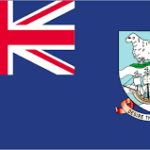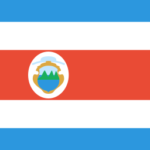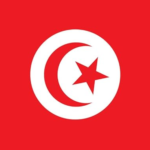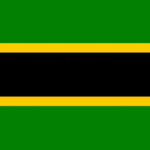Fees for registering Tanzania(Tanganyika) trademarks
Service Process
Trademark registration time
Tanganyika is a constituent part of the United Republic of Tanzania, and the current trademark regulations are mainly based on the Trademark Law No. 12 of 1986 and the Trademark Management Regulations of 2000. The Tanganyika Trademark Office is responsible for managing trademark affairs, and the official languages are Swahili and English. Trademark exclusive rights need to be obtained through registration. Trademark registration is not mandatory, but in order to better protect the trademark or renew it, it must be registered in accordance with the law.
Tanganyika is a party to international intellectual property treaties such as the TRIPS Agreement, Paris Convention, and Banjul Protocol, and has not yet joined the Madrid system. Therefore, trademark registration cannot be processed through the "Madrid International Registration" method, but can only be processed through "single country registration" or the "African Industrial Property Organization" method.
Trademark Registration Process
At present, the Tanganyika Trademark Office adopts the Nice Classification 11th edition for the description of goods and services, and only accepts applications for one table and one category. The elements that can be registered as trademarks for Tanganyika include: text, letters, graphics, numbers, three-dimensional shapes, color combinations, etc.
Natural or legal persons who do not have a domicile, main place of business, or a genuine and valid industrial and commercial enterprise in Tanganyika must entrust a specialized agent in that country to handle the matter. The basic materials required for trademark application are:
1. Trademark design;
2. Category and specific product items;
3. Name and address of the applicant;
4. Power of attorney;
5.If priority is declared, proof of priority must be provided.
The main process for applying for registration of the Tanganyika trademark is: application examination announcement approval and issuance of certificates. The application will be accepted within about 2 weeks after submission. The examiner will conduct formal and substantive examinations on the application. Formal review mainly examines whether the application requirements and classification information comply with regulations; The substantive examination includes the examination of the distinctiveness of the trademark, whether it violates the prohibition and prohibition clauses, and whether it conflicts with the prior trademark. If the examination fails, a rejection notice will be issued and the applicant will be required to respond within the time limit specified in the rejection notice. If the substantive examination passes, it will be arranged for public announcement.
The objection period is 60 days from the date of announcement. Any interested party or prior right holder may propose an elevation, and the main reasons for the elevation are:
1. Conflict with prior trademarks, such as owning a prior registered trademark;
2. The trademark lacks distinctiveness;
3. The trademark has adverse effects;
4. Malicious registration;
5. Conflict with other prior rights, such as trade name rights, design rights, copyrights, personal names, etc.
If there are no objections or objections are not valid during the announcement period, registration can be approved and a registration certificate can be issued. If everything goes smoothly, the registration of the Tanganyika trademark will take about 8 months; If the situation does not go smoothly and there is rejection or objection, the time will be extended.
Trademark registration materials
The Tanganyika trademark is valid for 7 years after registration, starting from the date of application; Renewal can be processed 3 months before the expiration date, with a grace period of 6 months; The renewal is valid for 10 years.
Start Your Trademark Business
Start Registration

do not understand? Contact us

do not understand? Contact us

do not understand? Contact us

do not understand? Contact us


 Tanzania(Tanganyika)
Tanzania(Tanganyika)